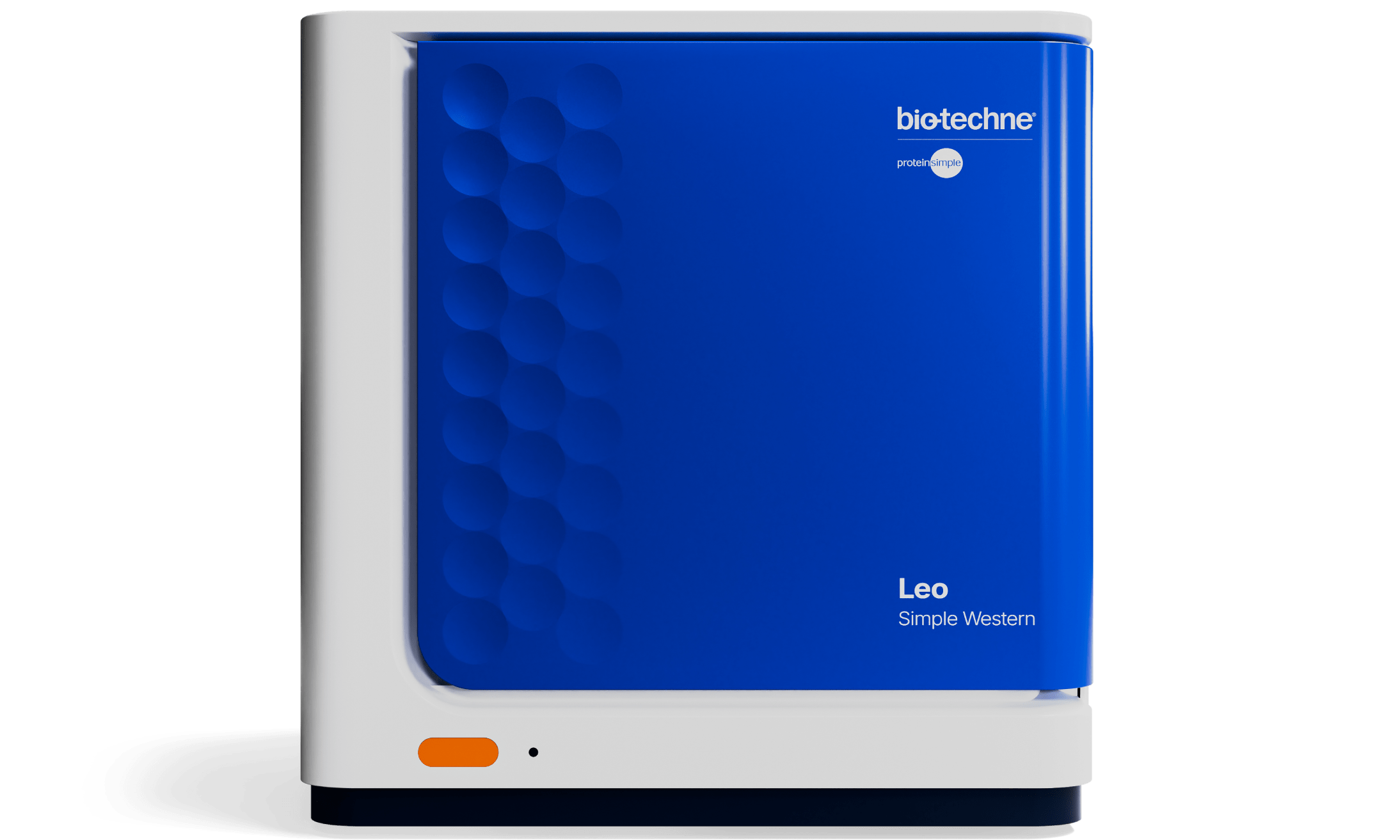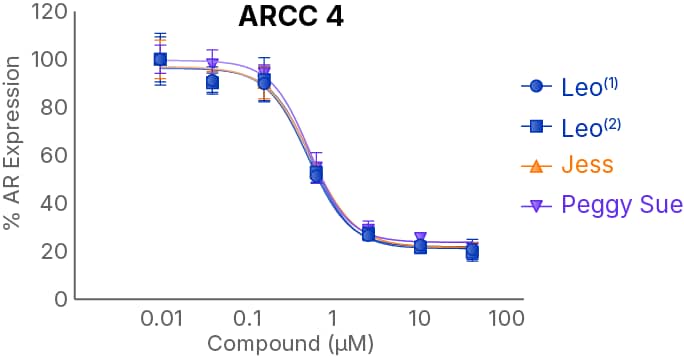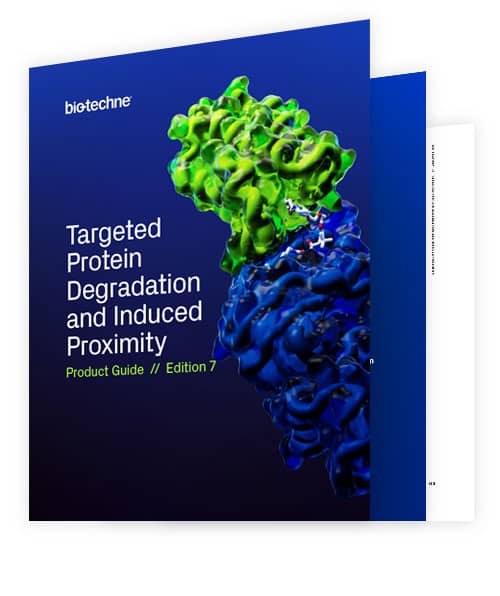The Simple Way to Targeted Protein Degradation Analysis
Simple Western Technology provides critical information to run quantitative DC50 curves with a high throughput protein degradation western workflow, producing reproducible and fully quantitative data. Simple Western Systems provide fully automated western blot analysis to enhance accuracy, ensure data quality, and deliver results in as little as 3 hours. Our systems integrate easily in PROTAC® and Molecular Glue Degrader screening assays while providing you the flexibility of seamless transferability of methods and an open platform to develop custom targeted protein degradation (TPD) assays.
Precision Meets Throughput in TPD Research
TPD is rapidly evolving, opening new therapeutic opportunities against traditionally undruggable targets. Efficient and precise protein quantification remains essential yet challenging. Simple Western Technology offers quantitative, reproducible data with minimal hands-on time. With the Leo System, the newest innovative platform in Simple Western Technology, TPD research is now more efficient and reliable, accelerating therapeutic discovery and development.
Accelerating Discovery in Targeted Protein Degradation
Innovative Approaches to Degrader Screening
Simple Western Technology provides fully automated protein degradation analysis, delivering reliable, reproducible quantitative protein expression data with size resolution for added specificity. Learn how to screen for PROteolysis-TArgeting Chimeras (PROTACs) using the Simple Western Platform. Leo, the latest Simple Western Instrument, streamlines PROTAC assessment by fully automating protein expression analysis in 96 lysate samples within just 3 hours, enabling efficient screening of targets like the Androgen Receptor (AR) for proteasomal degradation.
Resources for Targeted Protein Degradation
Targeted Protein Degradation and Induced Proximity
Targeted Protein Degradation and Induced Proximity
Our Targeted Protein Degradation and Induced Proximity Research Product Guide highlights the tools and services available from Bio-Techne to support your research, including Protein Degraders, Degrader Building Blocks, Custom Degrader Services, Proteins and Assays.
Simple Western Hits the Bullseye of Targeted Protein Degradation
Simple Western Hits the Bullseye of Targeted Protein Degradation
This review highlights vital publications that represent Simple Western’s high-throughput screening of degrader activity with reproducible quantification, flexible multiplex strategies, and fast time to results, from drug discovery of novel degraders through translation to the clinic.
Products and Services for Targeted Protein Degradation
Products and Services for Targeted Protein Degradation
Bio-Techne offers a full range of products and services for Targeted Protein Degradation research and development. Our tools will help you explore and validate your target of interest, develop new protein Degrader molecules and investigate their activity, as well as build your own assays for degradation.
“The quantitative assays and short run times on Jess enable us to generate data faster and be more confident in our results.”
Tonmoy Sarkar, PhD, Senior Research Scientist, TCG Lifesciences
PROTAC® is a registered trademark of Arvinas Operations, Inc., and is used under license.







